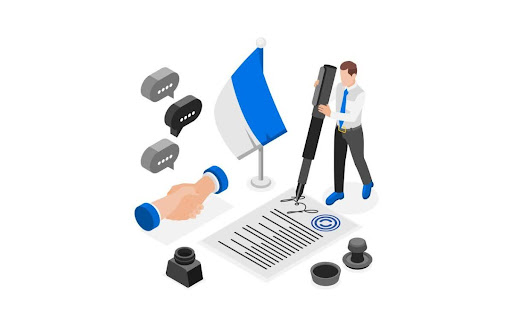Intellectual property is a complex and somewhat technical matter. Many artists suffer because they are unaware of their intellectual property rights. Intellectual property is a work that is the result of innovation and creativity. It can be a game, a software manuscript, or design. It can be a novel or a piece of literary writing. The creators of all such assets have the rights and can apply for the trademark, copyright, or patent. Being creative you need to be aware of your IP rights. This awareness and education help you to understand and know your rights and be the sole owner of your creativity.
Intellectual property translation services make the owner realize his rights most appropriately and understandably. The protection of copyrights, trademarks and patents has become crucial to operate globally. Language can become a hurdle while dealing with IP translation. Therefore, it is important to prepare in advance to avoid any such hurdles.
Here are a few of the language problems that can pose challenges in the process of IP translation.
Technical nuances
IP documents mostly comprise technical jargon. These documents have legal terms and can also contain data about the invention and creation of the owner. These could be either about a gaming language, programming language, or other complex domain. The mistranslation of these terms often leads to the misrepresentation of the IP and can also affect its protection.
False equivalents
The translators often have to struggle while working on intellectual property translation because technical terms do not have direct alternatives in every language. This is one of the challenges teams come across in language translation. The translators have to understand the nuances and context to find the best possible, accurate and legally sound alternative to use in the translation. Many translators use false equivalents, which often affect the quality of the translation.
Cultural references
The IP documents, many times, contain cultural references and implications. The lack of cultural understanding about a particular language and culture also makes translators stumble upon yielding cultural accuracy in IP translation. The lack of adherence to cultural references can lead to ambiguities and legal implications for businesses as well as translators.
Legal systems
Patents, copyrights, and trademarks all are legal terms and have their significance and implications. The rights and regulations regarding patents and copyrights vary all across the countries. The IP translators should be able to understand the legal framework that is in practice in the targeted country. Translators often fail to adhere to the legalities resulting in legal problems. Therefore, it is extremely crucial to ensure that you hire professional translation services to avoid such problems and inaccuracies.
Ambiguity and vagueness
The IP content is complex by nature and hence demands clarity and conciseness in translation. But it often gets difficult for the translators to maintain clarity. Moreover, if the given source text is ambiguous, its translation can be more challenging and lead to loopholes weakening the implementation of IP rights. Also, some languages are tough and do not offer direct alternatives for legal terms.
Verbose language
The verbose language does not work in IP translation particularly. A lot of translators do this when they use overly complex words with unnecessary details to convey information and express ideas that could have been exchanged in a simple and precise manner. All such translations can obscure the meaning of the text and make it difficult for the patent offices to interpret the documents most accurately. Professional translation services can help to provide the content in a simple manner.
Conclusion
Intellectual property translation is a complex process. The language translation particularly gets challenging due to the technical nuances, false equivalents, cultural references, legal systems ambiguity in IP content, and verbose language. Therefore, it is better to seek professional assistance from industry-specific translators.


